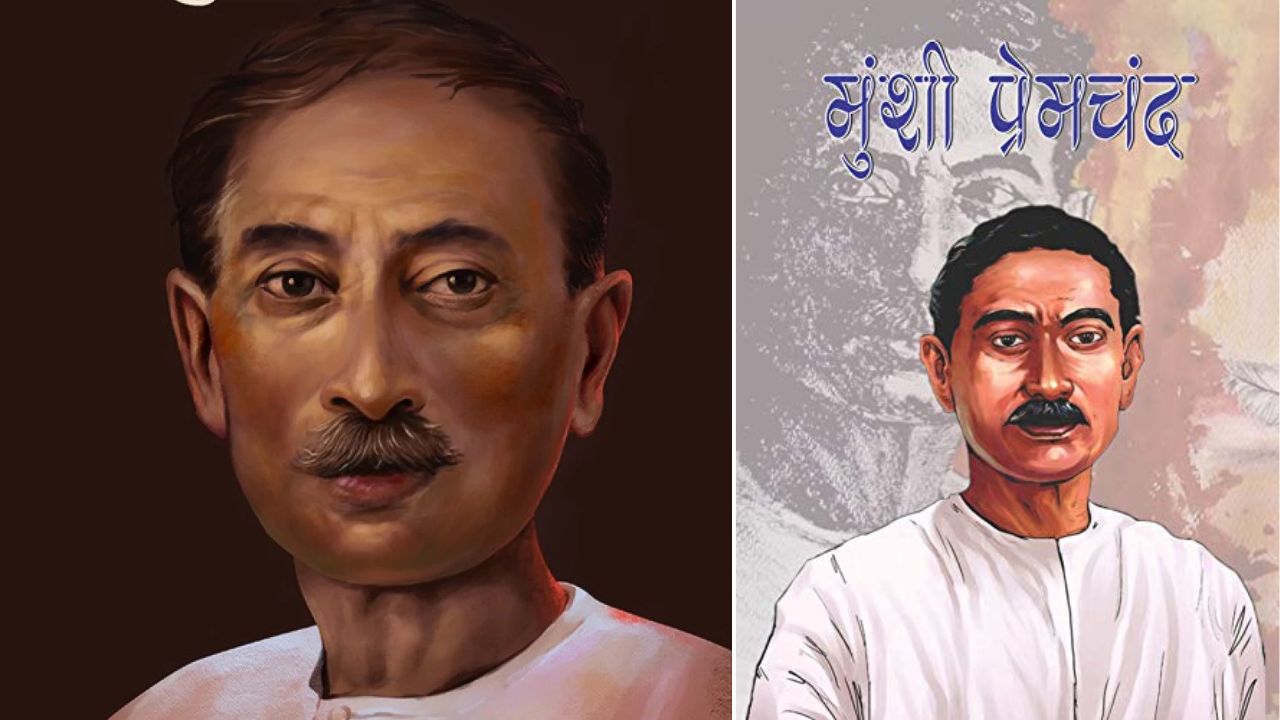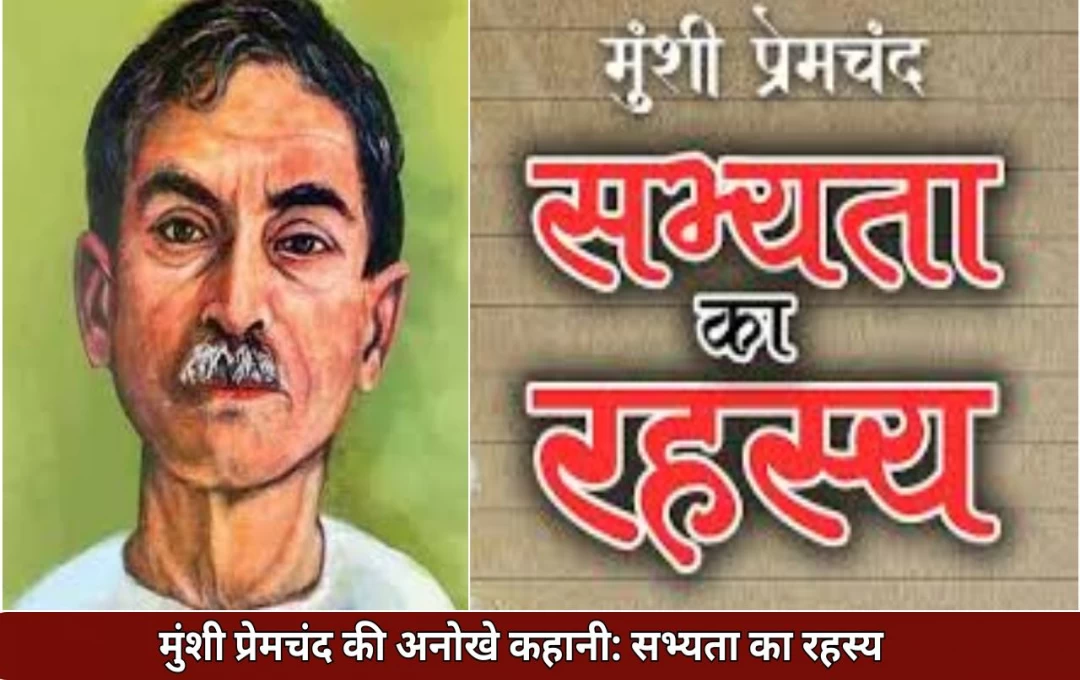Friends, our nation has been a cradle of great men and women throughout the ages – sages, poets, writers, musicians, and countless others. The countless works created by these luminaries are invaluable treasures. Today's youth, lost amidst the digital age, are seemingly drifting further and further from these invaluable inheritances. subkuz.com consistently strives to connect you with these precious legacies, alongside engaging stories, news, and insights from around the world. Presented here is a profound and inspirational story by the renowned author, Munshi Premchand.
The Mystery of Civilization
While a thousand and one things about the world elude my understanding – such as why people slash their hair in the morning? Has such delicacy now entered the masculine nature that they can no longer manage the weight of their hair? Why have the eyes of all educated men become so weak? Is it the weakness of the mind or something else? Why are people so perplexed by books? – but these matters do not concern me now. A new question has arisen in my mind, a question to which no one provides an answer. The question is: who is civilized and who is uncivilized? What are the characteristics of civilization? On the surface, it would seem to be a simple question, a matter easily solved by any child. But upon closer examination, it appears far less straightforward. If dressing in coats and trousers, wearing ties and hats, eating at a table, drinking cocoa or tea thirteen times a day, and walking about while smoking cigars constitutes civilization, then those pale-skinned men who are sometimes seen strolling on the streets in the evening; their eyes bloodshot from liquor, stumbling about, indiscriminately provoking those passing by – can they be called civilized? Never. This proves that civilization is something else entirely; it has less to do with the body and more with the mind.
Among my close acquaintances is one, Rai Ratan Kishore. He is a compassionate, generous, educated man of high standing. Despite his substantial salary, his income often falls short of his expenses. A quarter of his income goes to maintaining his lavish mansion. Consequently, he is often worried. He does not take bribes – at least, I do not know of any – although others allege it; however, I do know that he frequently travels on official business, often requesting budget allocations from other areas to fund these trips. His superiors ask why he undertakes so many trips, to which he replies that this district requires extensive travel for its inhabitants to remain content. The amusing part is that Rai Saheb doesn't actually undertake as many journeys as he records in his official log. His overnight stops are often fifty miles from the town itself. His tents are pitched there, and his camp staff remain in place, while Rai Saheb himself spends his time chatting with friends at home. Yet, no one dares question his integrity. His being a civilized man is beyond doubt.
One day I visited him. At the time, he was berating his servant, Damdi. Damdi was a night and day servant, but he often went home for his meals. His home was in a village nearby. He had failed to return to the premises last night. Hence, the rebuke.
Rai Saheb – “Since we have you employed round the clock, why were you at home? Your wages will be deducted for yesterday.”
Damdi – “Sir, a guest arrived, which is why I couldn't come.”
Rai Saheb – “Then collect your wages from that guest.”
Damdi – “Sir, it won't happen again.”
Rai Saheb – “Stop with the nonsense.”
Damdi – “Sir…”
Rai Saheb – “Two rupees fine.”
Damdi left, weeping. He came seeking pardon, but was met with punishment. The simple mistake of absence at night resulted in a fine of two rupees! A man who spends his time enjoying the comforts of home goes unpunished.
This was the penalty for a single night's absence! Having labored all day, not having slept there, this was his punishment! Meanwhile, the man who enjoys the advantages of a privileged position remains untouched! The punishment must be severe enough to remain etched in one's memory, but to execute such a punishment is difficult.

Damdi possessed a mere six acres of land. This land was insufficient to support his family. He had two sons, two daughters, and a wife, all working the land. Yet, they were unable to afford their sustenance. Was such a small plot of land supposed to provide a fortune? If the entire family took up laboring for wages, they could at least earn their keep; but a hereditary farmer could not accept the indignity of being labeled a laborer. To avoid this disgrace, he kept two oxen. A significant portion of his earnings went to feeding them. These hardships were bearable, but leaving farming to become a laborer was not acceptable. The prestige of a farmer could never equal that of a laborer, no matter how much the laborer earned each day. The oxen, tethered at the door, provided him with his dignity. However, selling the oxen would lead to the loss of his social standing! Where would he find respect again?
One day, seeing Damdi shivering from the cold, Rai Saheb asked, “Why aren't you wearing warmer clothes? Why are you shivering?”
Damdi – “Sir, my family can’t afford to buy food, let alone clothes.”
Rai Saheb – “Why don’t you sell your oxen? I've tried to explain this to you many times, but you seem to misunderstand.”
Damdi – “Sir, I wouldn’t be able to face my neighbors, the villagers. My daughters may not be able to marry, I will be ostracized.”
Rai Saheb – “It is these very follies that cause your plight. Such people cannot be helped. (Turning towards me) Why, Mr. Munshi? Is there a cure for this folly? People freeze during winter, but will keep their oxen tied outside the door.”
I said – “Sir, it is a matter of personal understanding.”
Rai Saheb – “Such understandings should be treated with caution. My family has held Janmashtami celebrations for generations. Hundreds of rupees were spent on it. There were songs, feasts, and invitations for relatives and the poor. Following my father's death, I stopped these celebrations in the first year. What was the point? Five to six thousand rupees were being wasted for free. The town was abuzz, people criticized me, some called me an atheist, others a Christian. But what did I care? Soon, all the commotion subsided. It was rather amusing. If someone in the village got married, they would ask me to provide the wood for the arrangements! This custom has been followed by generations of my family. My father used to buy the wood from others, maintaining this tradition. Folly, or not? I stopped providing wood immediately. Many people were upset, but should I listen to their complaints, or pursue my own interest? I saved at least five hundred rupees a year. Now, no one bothers to ask for wood.”
My heart was troubled. Who was more civilized? The foolish Damdi, who valued his family and status over everything else; or Rai Ratan Kishore, who sacrificed his family's principles for wealth?
A major case regarding a prominent citizen was under consideration by Rai Saheb. A wealthy man of the town was implicated in a homicide. To secure his release, his supporters began to lavish Rai Saheb with flattery. It was a matter of honor. The wealthy man's order was that the estate would be sold if necessary, but he would emerge untarnished from the trial. Gifts were exchanged, pleas were made, but Rai Saheb remained unmoved. The wealthy man’s associates were too afraid to even mention bribes directly.
(This continues to the end of the article.)







